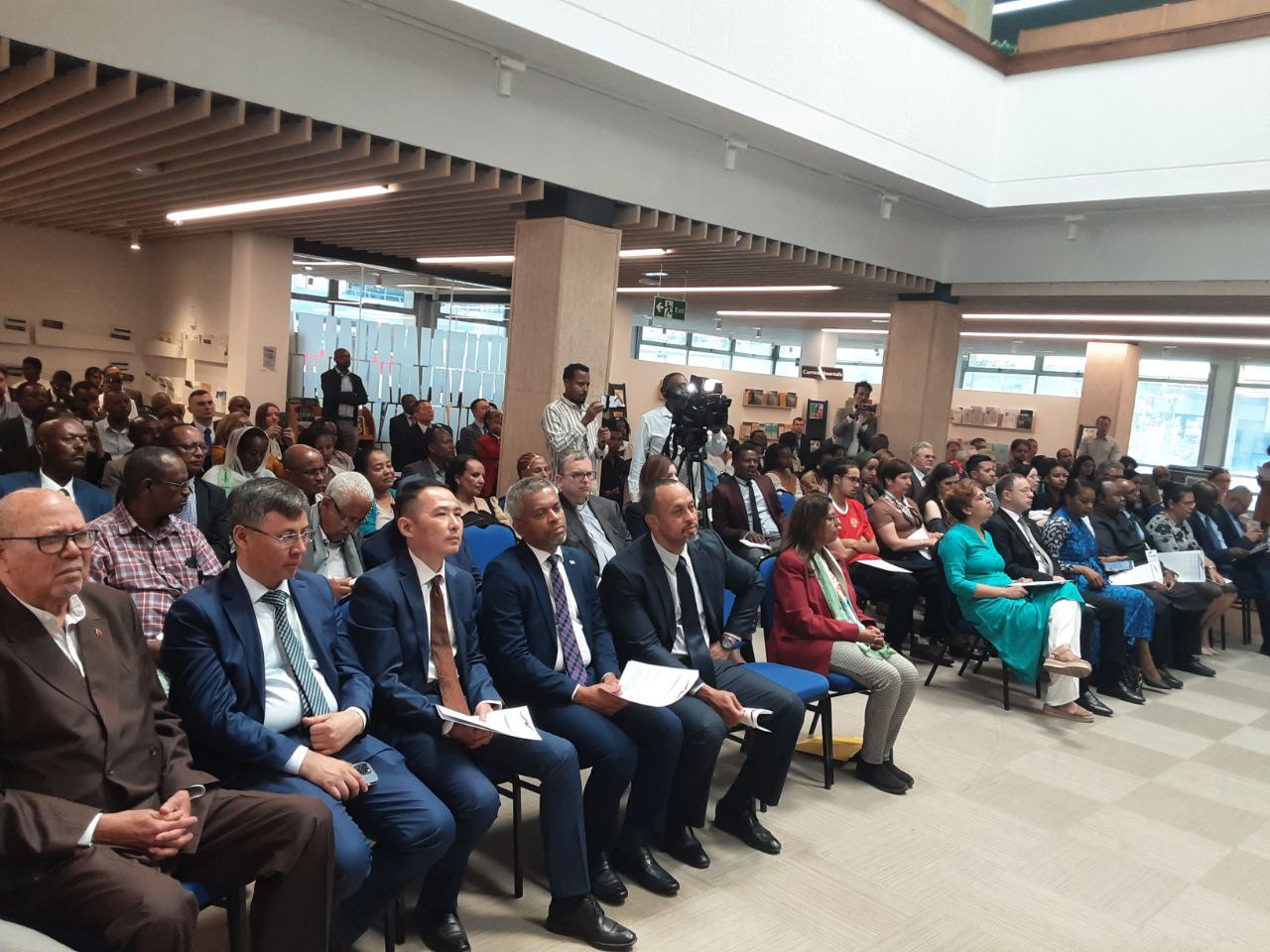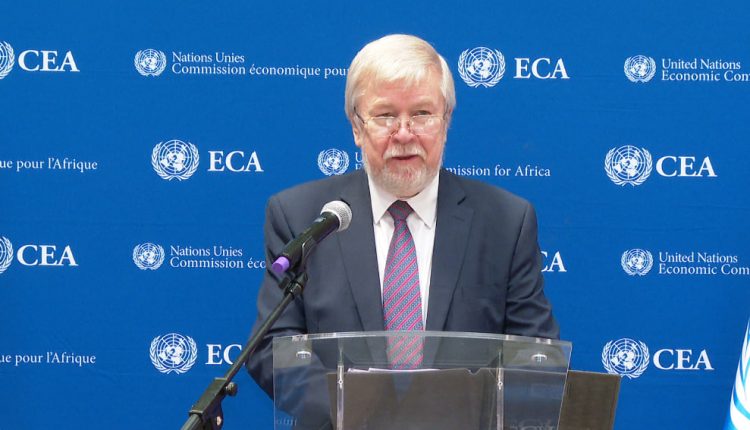Language is a bridge between cultures – Russian Ambassador
Addis Ababa, June 10, 2025 (FMC) — Russian Language Day was observed today at the United Nations Economic Commission for Africa (UNECA) headquarters in Addis Ababa, bringing together members of the diplomatic community, scholars, and invited guests for a celebration of language, culture, and enduring friendship.

Hosted in the heart of Africa’s diplomatic capital, the event highlighted the global relevance of the Russian language and featured a curated art gallery showcasing Russian culture, literature, philosophy, and music. The occasion coincides with the birthday of the great Russian poet Alexander Pushkin — a symbolic date chosen by both the Russian Federation and the United Nations to honor the Russian language.
Speaking at the event, the Ambassador of the Russian Federation to Ethiopia, a Mr. Evgeny Terekhin, described the Russian language as a “unique cultural code” and a dynamic reflection of a people’s memory and soul. “Language is far greater than a tool of communication,” the Ambassador remarked. “It evokes emotion, transmits values, and connects cultures. Russian, in particular, carries the richness of centuries of global and regional influence, including ties to Africa.”
Ambassador Terekhin quoted French writer Prosper Mérimée in praising Russian’s linguistic depth, noting its capacity to express subtle emotional and philosophical concepts—such as the elusive word “toska”, which he linked to both Russian and African sensibilities.
He also highlighted the enduring literary tradition of Russia, from Pushkin and Tolstoy to contemporary authors, as a living testimony to the evolution and expressive power of the language.
The Ambassador underscored the close historical and cultural bonds between Russia and Ethiopia, describing Ethiopia as a land of deep heritage that has long fascinated Russian scholars and writers. “The Russian poet Nikolai Gumilev found inspiration in Ethiopia, and his verses continue to resonate with the spirit of this nation,” he said.
Today, interest in Russian language and culture continues to grow among Ethiopian youth. The Russian Center for Science and Culture in Addis Ababa plays an active role in this regard—offering Russian language courses, organizing cultural activities, and promoting people-to-people ties through exchanges and public diplomacy.
Ambassador Terekhin emphasized that language is also central to diplomacy. “Diplomatic communication requires the kind of precision and clarity that comes from deep linguistic understanding,” he said, pointing out that Russian Foreign Minister Sergey Lavrov himself has contributed poetry, including authoring the anthem of the Moscow State Institute of International Relations—an institution that teaches over 50 foreign languages, including Amharic and other African languages.
“Russian Language Day is more than a commemoration—it is a call to preserve and celebrate the beauty of our linguistic heritage,” the Ambassador concluded. “It is gratifying to see so many here in Addis Ababa who appreciate the richness of Russian culture. Language builds bridges—and Russian continues to build such bridges with Africa, and with Ethiopia in particular.”
Also addressing the gathering, Ms. Rita Bissoonauth, Director of the UNESCO Representative Office to the AU, ECA, and Ethiopia, underscored the universal value of language. “Whether it is small or large, language is a treasure to human beings,” she said, reaffirming the commitment to a multilingual and united world.
She called for the protection of all languages and praised the richness of Russian arts, culture, and philosophy, noting that Russian is one of the six official working languages of the United Nations.
The event served as a reminder of the cultural bridges that language builds and reaffirmed the growing cooperation between Ethiopia and Russia in education and cultural exchange.

